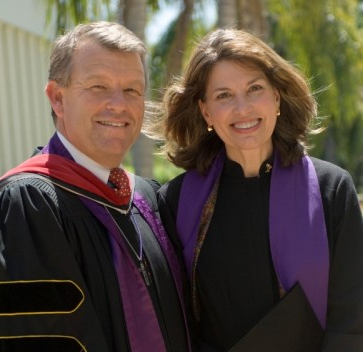 Casey and Bob Baggott, executive minister and senior minister of the Community Church of Vero Beach, recently wrote an article for TCPalm about just what it means to call one’s self “Bible-believing.” In contrast to those who are Biblical literalists, the Baggotts propose:
Casey and Bob Baggott, executive minister and senior minister of the Community Church of Vero Beach, recently wrote an article for TCPalm about just what it means to call one’s self “Bible-believing.” In contrast to those who are Biblical literalists, the Baggotts propose:
. . . none of us is capable, nor do we choose, to live out every literal dictate of the Bible. Instead, all faithful people must apply some principle by which we are capable of discerning the underlying messages which found expression in the biblical period thousands of years ago through a culture now long gone. Then we must ask ourselves how those underlying messages should find faithful expression in our culture today.
So What?
There are multiple definitions of Bible-believing. Gallup’s research (read my post about Gallup’s latest research) provides an historical overview of how many Americans hold each of three views: (1) the Bible is the actual word of God and is to be taken literally, (2) word for word the Bible is the inspired word of God but not everything in it should be taken literally, and (3) the Bible is an ancient book of fables, legends, history, and more precepts recorded by people. Interestingly while Biblical literalists are often the loudest voice among the three within the culture at large, they account for only 3 of every 10 people.
- Which of the three Bible-believing categories best describes you? the majority of people in your church?
- Do you think most churches are comprised primarily from people of a single group or a rich blend of two or more of these groups? How might such churches (those comprised primarily from people of a single group or a rich blend of two or more of these groups) differ based solely or primarily upon this makeup?
- Biblical literalism peaked at 40% (1980 & 1984), but has held somewhat steady around 30% for the last 10 years (ranging from 27-32%). Why do you think this minority perspective continues to attract attention disproportional to its size?